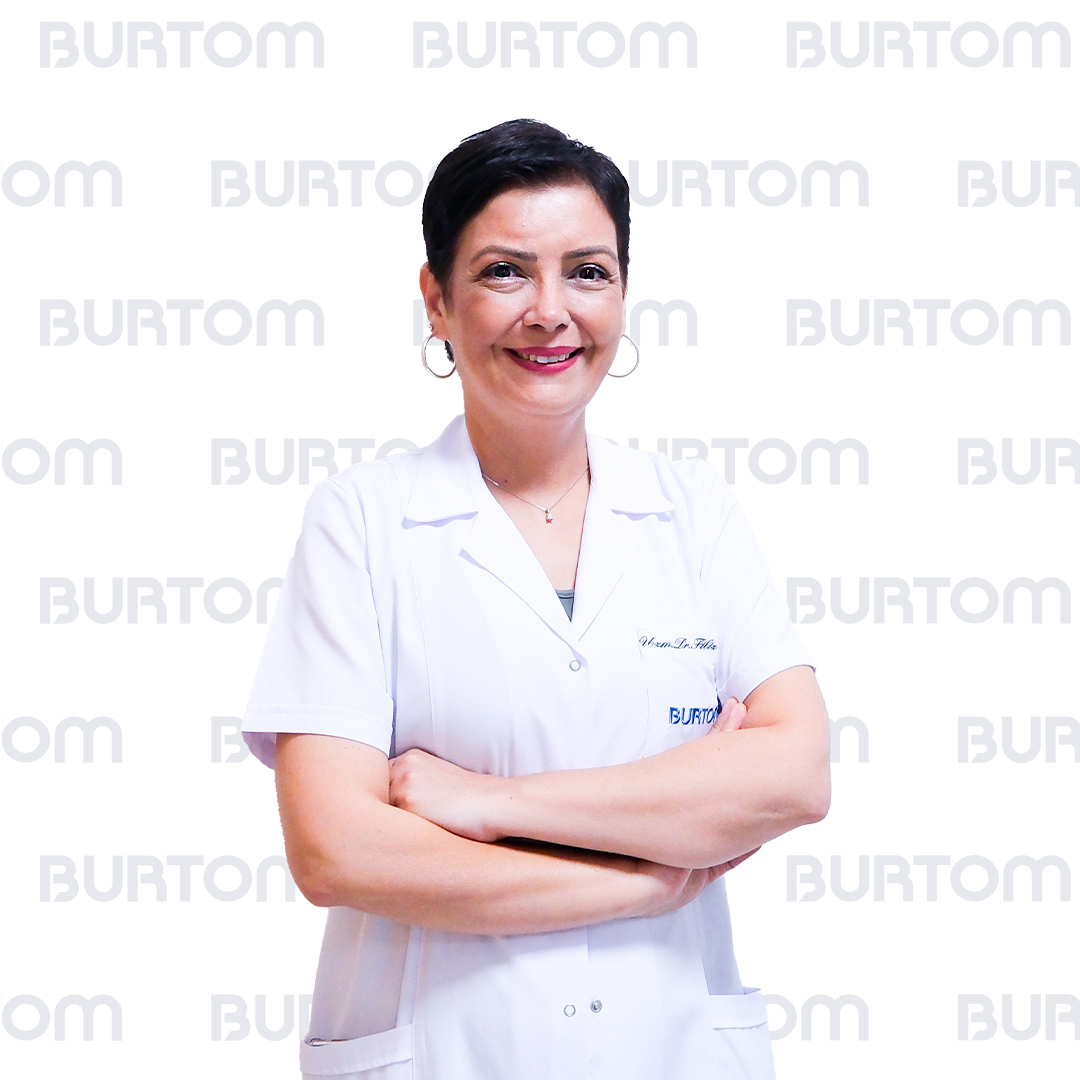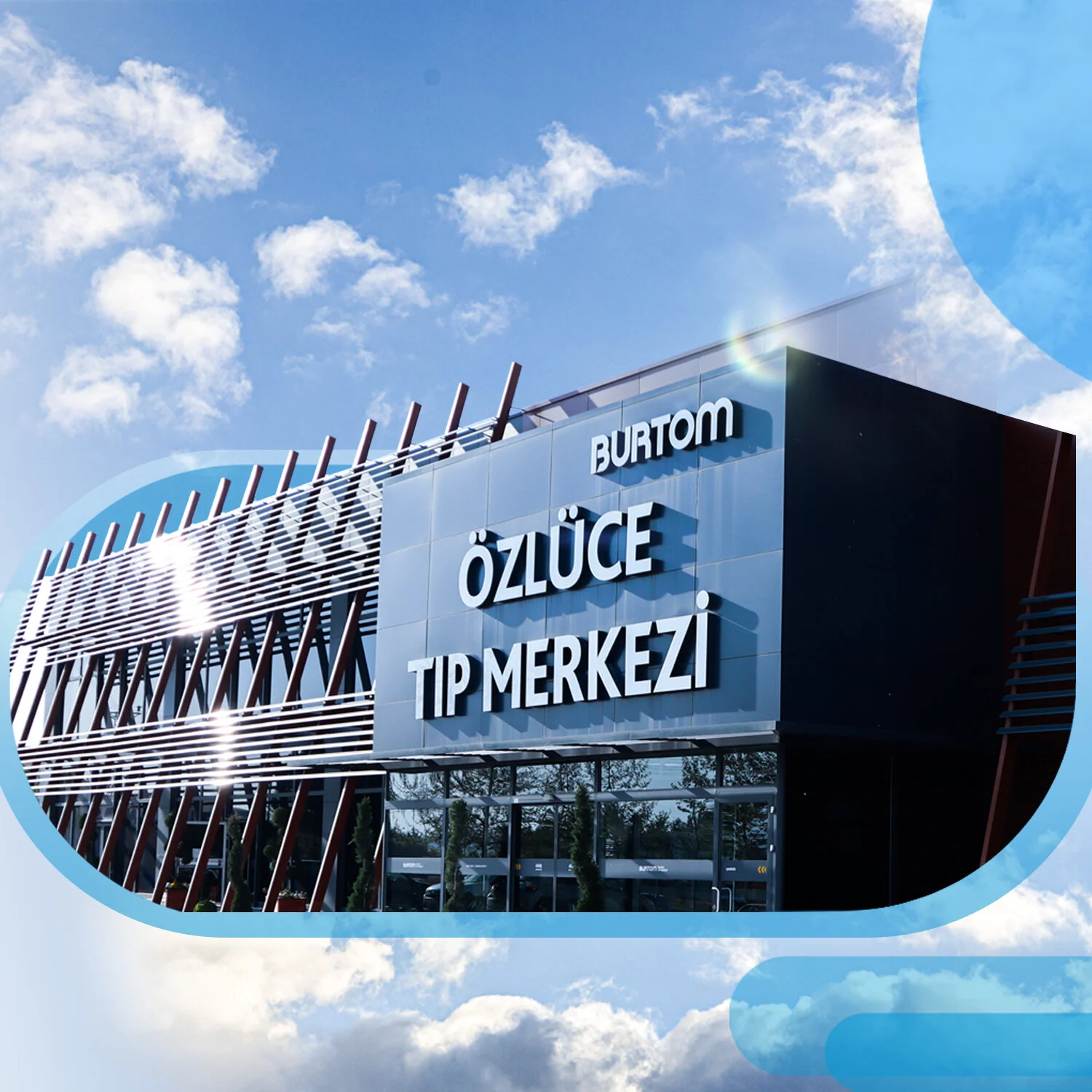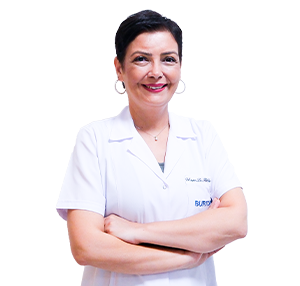Doctor Page: 🇬🇧 English | 🇹🇷 Türkçe

Burtom Özlüce Medical Center
Language : 🇹🇷 Türkçe 🇬🇧 English
Doctor Information:
Spec. Dr. Filiz GÜNDÜZER currently continues her professional studies at Burtom Özlüce Medical Center.
Education And Experience:
Spec. Dr. Filiz GÜNDÜZER graduated with honors from Eskişehir Osmangazi University Faculty of Medicine between 1993-1999. She obtained her specialist title at Istanbul Haydarpaşa Numune Training and Research Hospital from 2004-2010. Dr. Filiz GÜNDÜZER currently continues her professional work at Burtom Özlüce Medical Center.
Education:
Spec. Dr. Filiz GÜNDÜZER graduated from Eskişehir Osmangazi University Faculty of Medicine between 1993 and 1999. She obtained her specialist title at Istanbul Haydarpaşa Numune Training and Research Hospital from 2004 to 2010.
Experience:
- ● 2011-2013: Uşak Banaz State Hospital (MANDATORY SERVICE)
- ● 2014-2016: Öztan Hospital (Uşak)
- ● 2016-2017: Private Alfa Medical Center (İzmir)
- ● 2017-2019: Private Silivri Kolan Hospital (İstanbul)
- ● 2019-2020: İrmet Hospital (Tekirdağ)
- ● 2020-2021: Private Ege Şehir Hospital (İzmir) 2021-2023: Private Ekol Hospital (İzmir)
Areas of Interest:
Gastrointestinal diseases encompass health problems affecting digestive system organs such as the stomach, intestines, liver, gallbladder, and pancreas. Symptoms of these diseases include various digestive system symptoms like nausea, vomiting, abdominal pain, diarrhea, constipation, and difficulty digesting. Among gastrointestinal diseases are gastritis, ulcers, reflux disease, irritable bowel syndrome, Crohn’s disease, colitis, hepatitis, liver cirrhosis, and pancreatitis. Diagnosis and treatment of these diseases are generally performed by gastrointestinal specialists (gastroenterologists).
Thyroid diseases refer to various health problems occurring on the thyroid gland. The thyroid gland, located in the neck region, is an important gland that regulates metabolism. Thyroid diseases often result from conditions such as excessive or inadequate secretion of thyroid hormones or tumors on the thyroid gland. Hyperthyroidism is a condition resulting from excessive secretion of thyroid hormones, while hypothyroidism occurs due to inadequate secretion of thyroid hormones. Other thyroid diseases include nodules, goiter, thyroid cancer, and thyroiditis. Diagnosis of thyroid diseases is usually done through imaging techniques such as blood tests, ultrasound, and thyroid scintigraphy. Treatment aims to correct thyroid hormone deficiency or excess and may involve methods such as medications, surgical intervention, and radioactive iodine therapy.
Diabetes Mellitus (DM) and hypothyroidism during pregnancy are two significant health issues that can arise during pregnancy.
Gestational Diabetes Mellitus (DM): Diabetes mellitus, or diabetes, during pregnancy is referred to as gestational diabetes. Pregnancy hormones can increase insulin resistance in the body, leading to elevated blood sugar levels. This condition typically occurs in the second half of pregnancy and often returns to normal after delivery. However, if gestational diabetes is not controlled, it can have adverse effects on the health of both the mother and the baby.
Hypothyroidism during Pregnancy: A decrease in thyroid hormone levels during pregnancy can lead to a condition called hypothyroidism. Hypothyroidism during pregnancy can affect both the mother’s and the baby’s health. Thyroid hormones are necessary for the normal growth and development of the baby. Hypothyroidism can lead to complications such as birth defects, low birth weight, and intellectual developmental delay.
Early diagnosis and treatment of these conditions are important to protect the health of both the mother and the baby. Diagnosis typically involves diagnostic methods such as blood tests and thyroid function tests. Treatment includes dietary modifications, exercise, insulin therapy if necessary for diabetes, and thyroid hormone replacement therapy for hypothyroidism.
Type 1 and Type 2 Diabetes Mellitus are two different types of diabetes mellitus that typically result from metabolic disorders related to insulin hormone.
Type 1 Diabetes Mellitus: The immune system attacks insulin-producing cells in the pancreas, leading to damage and inhibiting insulin production. As a result, the body cannot produce insulin, leading to elevated blood sugar levels. It typically occurs in childhood or young adulthood and requires insulin injections.
Type 2 Diabetes Mellitus: In this type of diabetes, the body still produces insulin, but cells develop insulin resistance and cannot effectively use insulin. This results in elevated blood sugar levels. Type 2 diabetes is often associated with lifestyle factors, especially obesity, sedentary lifestyle, and genetic factors. It usually occurs in adulthood but can also occur in childhood and can initially be controlled with diet, exercise, and sometimes medication.
Both types can lead to serious complications if blood sugar levels are not controlled, so early diagnosis and effective treatment are important.
Anemia is a condition where the number of red blood cells (erythrocytes) or hemoglobin levels in the blood fall below normal. Anemia is diagnosed using laboratory tests such as complete blood count. Treatment involves various methods depending on the underlying causes of anemia, including iron supplements, vitamins, blood transfusions, or medications.
Insulin resistance is a condition where the body responds less to insulin than normal. This means that cells cannot effectively use glucose provided by insulin. Insulin resistance is often associated with obesity, sedentary lifestyle, genetic factors, and some diseases. Insulin resistance is a significant risk factor in the development of type 2 diabetes. Diagnosis of insulin resistance is usually done through blood tests, and treatment may involve adopting a healthy lifestyle (balanced nutrition, exercise), weight loss, medication, and insulin therapy if necessary.
“A comprehensive approach to internal medicine diseases” refers to internal medicine specialists addressing diseases from a perspective that includes physical, emotional, social, and spiritual dimensions. This approach aims not only to treat diseases with symptom management but also to improve the patient’s overall health and well-being.
Upper and lower respiratory tract diseases refer to health problems affecting the upper and lower regions of the respiratory system. Upper respiratory tract diseases include conditions affecting the nose, throat, sinuses, and upper airways, while lower respiratory tract diseases involve conditions affecting the bronchi, lungs, and lower airways. Among these diseases are many different conditions such as influenza, the common cold, sinusitis, pharyngitis, bronchitis, pneumonia, asthma, and COPD.
Allergic diseases refer to health problems that arise when the body’s immune system reacts excessively to normally harmless substances (allergens). This reaction is often associated with various conditions such as allergic rhinitis (hay fever), asthma, eczema, food allergies, and insect bite allergies. Symptoms of allergic diseases can manifest as various symptoms such as runny nose, sneezing, itching, watery eyes, skin rashes, shortness of breath, and respiratory problems. Treatment usually involves methods such as avoiding allergens, medications, and immunotherapy.

Get a Free Second Opinion
Experienced Burtom Medical Team is Ready to Help

I consent to Burtom Health Group using my aforesaid personal data for the purposes described in this notice and understand that I can withdraw my consent at any time by sending a request to info@burtom.com.





